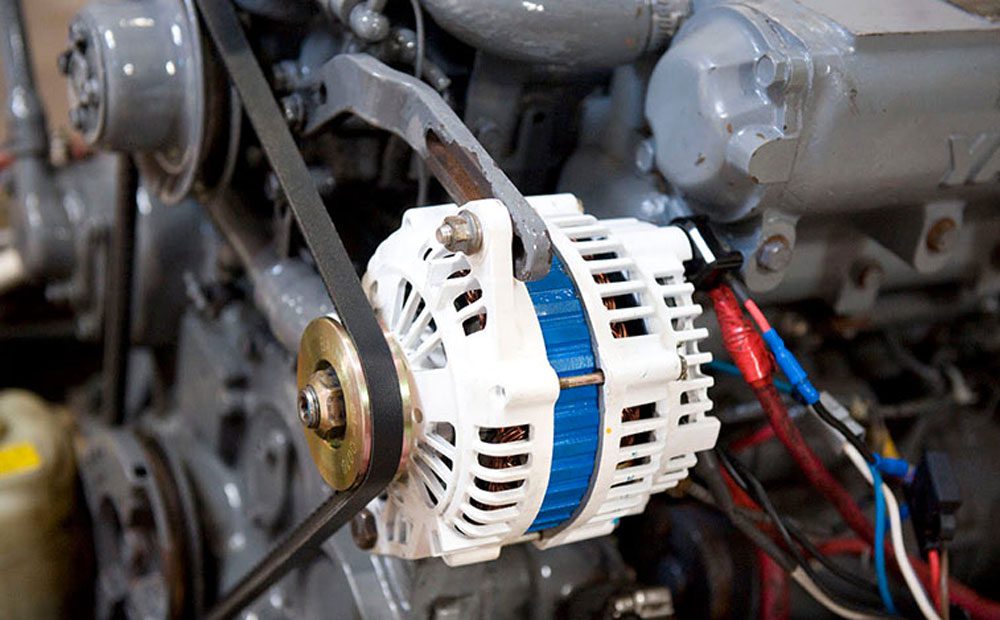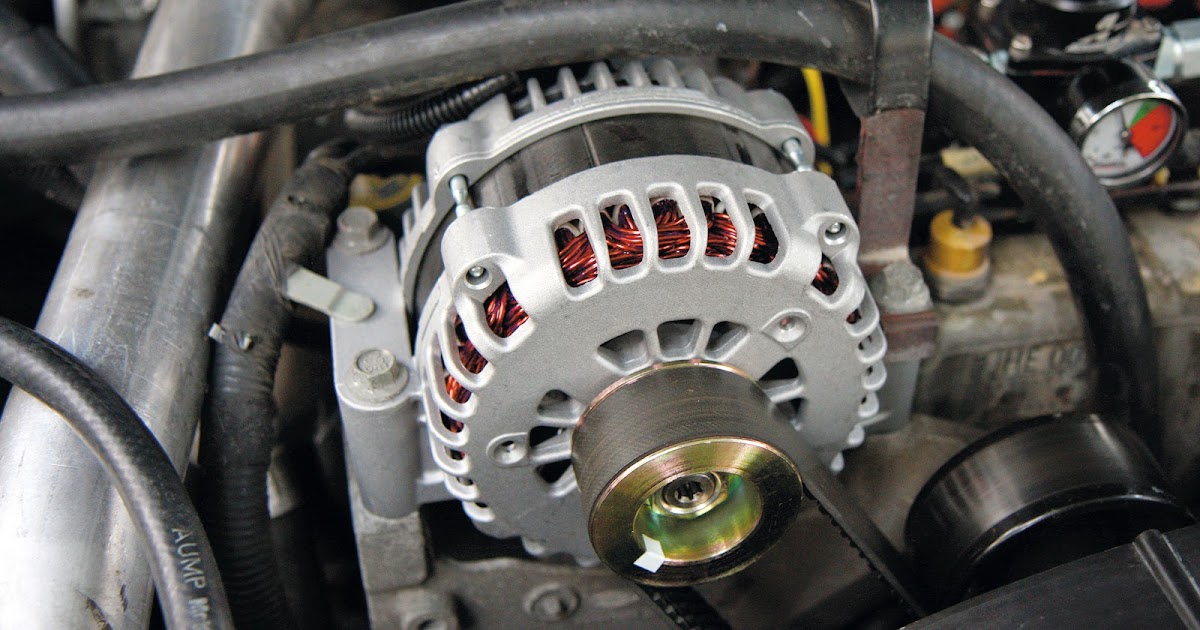The Ford Territory Alternator plays a crucial role in maintaining your vehicle’s performance. It is responsible for keeping the battery charged and powering all electrical components in the car, from the air conditioning to the headlights. Understanding how the Ford Alternator works is essential for any car owner who wants to keep their vehicle in top shape. In this blog post, we’ll discuss the importance of the Ford Alternator and how it affects your car’s performance.
What is a Replacement Alternator Ford Territory?
A replacement alternator Ford Territory is a crucial component that keeps your vehicle running smoothly. When your current alternator becomes faulty or stops working altogether, it is important to replace it with a compatible Ford alternator.
A replacement alternator for the Ford Territory is designed to provide the same functions and performance as the original equipment. It ensures that your vehicle’s battery is continuously charged, providing power to all electrical components, such as the headlights, air conditioning system, and radio.
 When selecting a replacement alternator for your Ford Territory, it is essential to choose one that is specifically designed for your vehicle model. This ensures that it will fit properly and function correctly.
When selecting a replacement alternator for your Ford Territory, it is essential to choose one that is specifically designed for your vehicle model. This ensures that it will fit properly and function correctly.
Purchasing a replacement alternator from a reputable source, such as an authorized Ford dealer or a trusted auto parts store, is highly recommended. This ensures that you are getting a high-quality alternator that will meet the necessary specifications and provide reliable performance.
How Does Ford Falcon BF Alternator Work?
The Ford Falcon BF alternator is an essential component in your vehicle’s electrical system. It plays a vital role in generating the electrical power needed to run all the electrical components in your car, from the headlights to the air conditioning system.
It all starts with the engine. When the engine is running, it spins a belt that is connected to the alternator. This belt causes the alternator to rotate, creating a magnetic field. This magnetic field then interacts with a stationary component inside the alternator called the stator.
The interaction between the magnetic field and the stator causes a current to be generated. This current is then converted into direct current (DC) and regulated to the proper voltage to charge the battery and power all the electrical components in the vehicle.
The Ford Falcon alternator also has a built-in voltage regulator, which ensures that the electrical output remains at a consistent level. This prevents the electrical system from being overloaded or undercharged.
Signs that Your FG Falcon Alternator is Failing
As a responsible car owner, it’s important to be aware of the signs that your FG Falcon alternator may be failing. Catching these signs early can save you from potential breakdowns and expensive repairs. Here are some key indicators that your alternator might be on the fritz:
- Dimming or flickering headlights: If you notice that your headlights are not as bright as usual, or they flicker intermittently, it could be a sign that your alternator is not supplying enough power to the electrical system.
- Difficulty starting the engine: An alternator that is failing may not provide enough power to start your engine, leading to slow or hesitant cranking. If you experience difficulties starting your car, especially in combination with other signs, it’s worth having your alternator checked.
- Electrical issues: A failing alternator can cause various electrical issues in your vehicle. These may include sporadic power windows, a malfunctioning radio, or erratic dashboard lights. If you notice any unusual behavior from your car’s electrical components, it could be a warning sign.
- Dead battery: While a dead battery can have several causes, a failing alternator is a common culprit. If you find yourself frequently needing to jump-start your car or if your battery dies unexpectedly, it’s a good idea to have your alternator tested.
Common Causes of Alternator Failure
One of the most frustrating experiences for car owners is a failing alternator. It can leave you stranded on the side of the road and lead to expensive repairs. To help you avoid this headache, let’s explore some common causes of Ford alternator failure.
- Age and Wear: Over time, the internal components of the alternator can wear out, causing it to function less efficiently. This wear and tear can eventually lead to failure. It’s important to keep in mind that the lifespan of an alternator can vary depending on usage and maintenance.
- Electrical Overload: If your vehicle’s electrical system is overloaded, it can put excessive strain on the alternator. This can happen if you continuously add aftermarket electrical accessories without upgrading the alternator to handle the increased demand. Over time, this can lead to alternator failure.
- Faulty Battery: A faulty or aging battery can put extra stress on the alternator. If the battery is not holding a charge properly, the alternator has to work harder to keep it charged. This can eventually lead to alternator failure.
- Contaminated Cooling System: The alternator generates a significant amount of heat while it operates. If the cooling system is not working properly or if there is a buildup of debris, the alternator can overheat, causing it to fail prematurely.
- Belt Issues: The alternator relies on a belt to spin and generate power. If the belt becomes loose, worn, or breaks, the alternator will not function properly, leading to failure.
Tips for Maintaining Your Ford Alternator
Maintaining your Ford alternator is crucial for ensuring its longevity and optimal performance. Here are some tips to help you keep your alternator in top shape:
- Regular Inspections: It’s important to visually inspect your alternator for any signs of damage, loose connections, or worn-out belts. Look for frayed wires, corrosion, or any unusual noises coming from the alternator. If you notice anything out of the ordinary, it’s best to have it checked by a professional.
- Cleanliness: Keep the area around your alternator clean and free from debris. Dust, dirt, and other particles can accumulate on the alternator and hinder its performance. Use a soft brush or cloth to gently remove any dirt or grime, being careful not to damage any components.
- Battery Maintenance: A healthy battery is crucial for the proper functioning of your alternator. Regularly check the battery’s voltage and ensure it is fully charged. Clean the battery terminals and connections to prevent any corrosion or buildup that could affect the charging process.
- Avoid Overloading: Be mindful of the electrical load on your vehicle. Adding excessive aftermarket accessories or overusing power-hungry features can put unnecessary strain on your alternator. Ensure that the alternator is capable of handling the increased demand before adding any additional electrical components.
Replacing Your Ford Alternator: What You Need to Know
Replacing your Ford alternator is an important task that every car owner may face at some point. Understanding what is involved in this process can help you make informed decisions and ensure that your vehicle continues to run smoothly.
When it comes to replacing your Ford alternator, there are a few key things you need to know. First, it’s important to choose the right replacement alternator for your specific Ford model. This ensures that it will fit properly and function correctly.
Next, you’ll need to gather the necessary tools for the job. This may include a socket set, wrenches, and a belt tensioner tool. It’s also a good idea to have a repair manual or online guide specific to your Ford model to reference during the process.
Before beginning the replacement, make sure to disconnect the negative battery cable to prevent any electrical accidents. Then, remove the belt that is connected to the alternator and any other components that may be blocking access.
Once the old alternator is removed, carefully install the new one in its place, making sure to secure it properly. Reattach any belts and components that were removed, and then reconnect the negative battery cable.
After the installation is complete, it’s important to test the new alternator to ensure it is working correctly. Start your vehicle and check that all electrical components are functioning properly, such as the headlights, radio, and air conditioning system.
If you’re not confident in your ability to replace the alternator yourself, it’s always best to seek professional help. A trusted mechanic or dealership will have the knowledge and expertise to ensure the replacement is done correctly.
FAQS
Here are some frequently asked questions about the Ford Alternator:
1. How long does a Ford Alternator last?
The lifespan of a Ford Alternator can vary depending on factors such as usage and maintenance. On average, a well-maintained alternator can last anywhere from 80,000 to 150,000 miles.
2. How much does it cost to replace a Ford Alternator?
The cost of replacing a Ford Alternator can vary depending on factors such as the brand, model, and where you purchase it. On average, the cost can range from $200 to $500, including parts and labor.
3. Can I replace the Ford Alternator myself?
While it is possible to replace the Ford Alternator yourself, it is recommended to seek professional help if you are not experienced with automotive repairs. The alternator replacement process can be complex, and improper installation can lead to further damage.
Conclusion
In conclusion, the Ford Alternator is a vital component of your vehicle’s electrical system. It plays a crucial role in maintaining your car’s performance by ensuring that the battery remains charged and all electrical components are powered. Understanding how the Ford Alternator works and how to maintain it is essential for keeping your vehicle running smoothly. We discussed the importance of choosing a compatible replacement alternator for your Ford Territory and purchasing it from a reputable source. A high-quality alternator that meets the necessary specifications is crucial for optimal performance and longevity.



